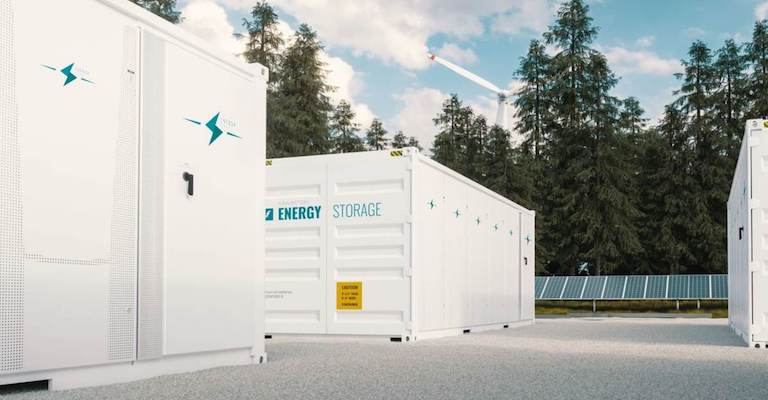UL Provides a Quicker Path To Energy Storage Standards Compliance
UL certification for energy storage equipment subassemblies helps to shorten the path to Energy Storage Systems (ESS) and equipment compliance.
March 10, 2022

Energy storage systems (ESS) are the key to the use of variable renewable energy sources such as wind and solar to reduce global greenhouse gas (GHG) emissions. ESS are used for utility, commercial/industrial, and residential applications, providing a source of reliable power during peak usage times and assisting with load management, power fluctuations, and other grid-related functions.
As ESS has become more commonplace, installation codes and standards have been updated to address the energy storage applications which often use new ESS technologies. The 2018 editions of the International Fire Code, International Residential Code, and the NFPA 1 Fire Code introduced requirements specifically for ESS applications, with a focus on lithium-ion batteries. Requirements were further refined in the 2021 editions of those codes, and in the 2020 edition of NFPA 855, the Standard for the Installation of Stationary Energy Storage Systems.
These codes and standards all require electrochemical ESSs to be listed in accordance with UL 9540, the Standard for Safety of Energy Storage Systems and Equipment, which was first introduced in November 2016.
Streamlining the Process
Global science safety leader UL (formerly known as Underwriters Laboratories) has announced that it has created a certification service for energy storage equipment subassemblies (ESES) to evaluate for compliance to UL 9540, the Standard for Energy Storage Systems and Equipment. This allows manufacturers of large energy storage assets to procure certified (listed) components from the battery supplier and the power conditioning equipment supplier to create the energy storage system (ESS).
The ESES Certification program makes it easier for direct current (DC) storage system manufacturers, code authorities, and owners of ESS assets to:
Demonstrate DC storage systems meet UL 9540
Have flexibility when pursuing UL's Battery and Energy Storage System Testing and Certification services
Find suppliers within UL Product iQ®
Navigate a rapidly changing code and regulatory compliance environment
"Through the new Energy Storage Equipment Subassemblies Certification, a DC storage system manufacturer has an easier and faster path toward Certification to UL 9540. This is another example of how our cost-effective and time-sensitive certification strategies deliver the utmost flexibility and superior certification methods, accelerating time to market," said Maurice H. Johnson, a product manager for batteries and energy storage systems in UL's Energy and Industrial Automation group in a UL news release. "UL is first to offer this type of Certification, and we are proud that we can pair it with our world-class fire propagation testing."
UL has already certified three ESES for NHOA Energy (formerly Engie EPS), NHOA Group's Global Business Line dedicated to stationary energy storage that designs and delivers turn-key storage systems, helping independent power producers to achieve their renewable targets.
L. Costanza, head of Certification and Quality at NHOA added, "Having the first system to achieve the UL Certification to UL 9540 for NHOA's ESES reflects our commitment to complying with the latest safety standards and our focus on the U.S. energy storage market. This result allowed the installation of NHOA high-density 40-foot containers in two utility-scale storage systems in California and Massachusetts. With the UL Certification for ESES process, NHOA can now provide safer and more competitive solutions."
Kevin Clemens is a Senior Editor with Battery Technology.
About the Author(s)
You May Also Like





